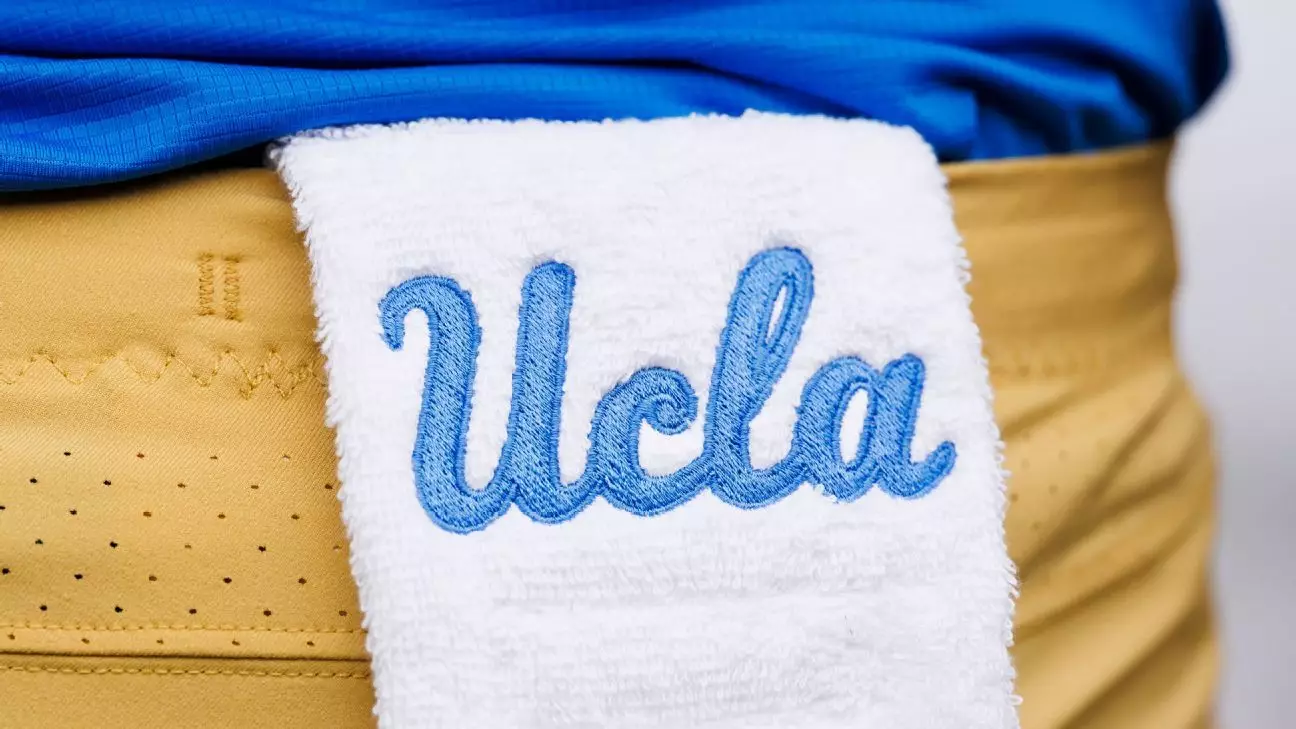The recent announcement regarding Madden Iamaleava, the younger brother of Nico Iamaleava, choosing to transfer from Arkansas back to UCLA epitomizes the unpredictable nature of college football recruitment. In a twist of fate, this decision raises profound questions about loyalty, brotherhood, and the volatility of student-athlete commitments in a system that often prioritizes victories over values. Madden’s journey is emblematic of a larger issue at play in collegiate sports—why do young recruits constantly flip their commitments, and at what cost?
Madden Iamaleava, originally committed to the Bruins before flipping to Arkansas, has fallen victim to a recruitment cycle that seems more like a power play than a genuine sporting initiative. His initial decision to commit to UCLA should have marked the beginning of a fruitful and stable collegiate career. Instead, it turned into a whirlwind of uncertainty that concludes with him mirroring his brother’s recent transfer. While some may celebrate the reunion as a heartwarming family affair, I’m left questioning the integrity of a recruitment system that seems to force athletes into these morally ambiguous choices.
The NCAA Transfer Portal: A Double-Edged Sword
The NCAA transfer portal was born out of a desire for student-athletes to find better opportunities, but it also fosters a chaotic environment where talent is at constant risk of being siphoned away. Madden Iamaleava’s decision to enter the portal reflects how the allure of greener pastures can lead young men to overlook the ramifications of their choices. It’s undisputably exciting to consider what it means for a family to reunite on the same team, but we should not ignore the disarray it causes throughout recruiting classes and commitments.
What’s particularly troubling is Madden’s status as one of the highest-ranked prospects in the 2025 class. He carries not just his own ambitions but the weight of expectations. This recruitment spree is a reminder that young athletes may not truly understand the implications of their decisions until they are thrust into the maelstrom of college athletics. The thrill of being pursued by elite programs can cloud judgments and stifle the development of young talents into informed, committed players.
The Brother Dynamic: Unity or Division?
The reunion of the Iamaleava brothers at UCLA might resonate emotionally, yet it masks a troubling reality; their paths were sculpted by conflicting interests within the sport. While family ties should be celebrated, one can’t help but wonder if the NCAA’s broken recruitment process creates fissures rather than builds bonds. Both brothers have now navigated the tumultuous waters of college athletics, representing the unpredictable climate that drives student-athletes to prioritize short-term gains.
One cannot overlook how the narrative surrounding these young men reflects broader societal issues of loyalty and personal ambition. The collegiate sports arena has morphed into a high-stakes business where young athletes make perilous financial and emotional decisions, often at the risk of their well-being. The notion that brotherhood can be both a source of support and a catalyst for complicating decisions does not go unnoticed.
In light of these developments, the Iamaleava brothers’ reunion at UCLA might signify more than just sibling solidarity. It could very well represent the tumultuous emotional landscape within college football, serving as a harsh reminder of the choices that young athletes are pressured to make in an ever-changing environment. Such a reality is both disheartening and illuminating, offering a glimpse into why the love of the game is so often overshadowed by the business tactics of recruitment and the transient nature of commitment in today’s college football.


Leave a Reply